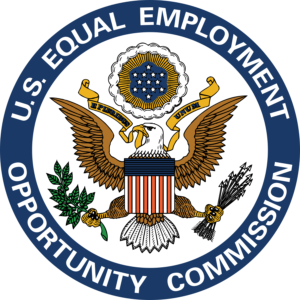Ward Law LLC is dedicated to keeping our clients informed about all things COVID-19 related. Our business is to ensure that you have all the information you need to keep your business going. In that regard, please read below for an EEOC COVID-19 update.
EEOC Confirms COVID-19 Testing Allowed
 As states begin reopening their economies following stay-at-home orders and quarantines, many employers are rightfully cautious about allowing employees, many of whom have not been seen by the employer or able to come into work for several weeks, to simply come in and pick up where they left off. Remember when your mother would scold you for touching something because you had no idea where it had been? Well, the same argument applies in engaging in responsible and cautious reopening of businesses. There has been a paucity of truly useful guidance from the EEOC on what steps employers may take to ensure their returning employees are not infected with COVID-19 and can safely be around other employees or customers. Mandatory medical testing is the most obvious choice, but the employer risks running afoul of the Americans with Disabilities Act (“ADA”). Prior guidance indicated that employers could take an employee’s temperature to assess whether they have symptoms of the virus, also pointing out that the data must be kept confidential. There really was not much comment on actual COVID-19 testing or antibody testing.
As states begin reopening their economies following stay-at-home orders and quarantines, many employers are rightfully cautious about allowing employees, many of whom have not been seen by the employer or able to come into work for several weeks, to simply come in and pick up where they left off. Remember when your mother would scold you for touching something because you had no idea where it had been? Well, the same argument applies in engaging in responsible and cautious reopening of businesses. There has been a paucity of truly useful guidance from the EEOC on what steps employers may take to ensure their returning employees are not infected with COVID-19 and can safely be around other employees or customers. Mandatory medical testing is the most obvious choice, but the employer risks running afoul of the Americans with Disabilities Act (“ADA”). Prior guidance indicated that employers could take an employee’s temperature to assess whether they have symptoms of the virus, also pointing out that the data must be kept confidential. There really was not much comment on actual COVID-19 testing or antibody testing.
The standard for mandatory medical testing under the ADA is that the test must be job related and consistent with business necessity. The EEOC confirmed what many had argued, stating that employers may take steps to determine if returning employees have the virus because an individual with COVID-19 is a threat to the health and safety of co-workers and customers. In other words, employers are allowed to implement testing requirements for returning employees without running afoul of the ADA. The EEOC went on, however, to warn that any employer implementing COVID-19 testing should ensure that the tests are accurate and reliable. The Commission suggests following guidelines from agencies such as the Food and Drug Administration or Centers for Disease Control about what constitutes safe and accurate testing, keeping in mind that there will be instances of false positives and false negatives. No matter the result, employers should still require that employees observe infection control practices such as social distancing and regular handwashing.
So, what does all of this mean and what steps may an employer take to ensure their business operations reopen as safely as possible? Employers are allowed to require testing, and the employer should take whatever steps are necessary to ensure the testing is as reliable and accurate as possible. Requiring testing with a primary care physician, and presentation of a corresponding note, is likely the best way to go forward if a business chooses to require testing.
It should also be noted that the EEOC guidance does not touch on the permissibility of using antibody testing. That appears to be an open issue that will hopefully be addressed in future EEOC updates.
For any questions about the EEOC update regarding COVID-19, please email the Ward Law helpline any time at covid19helpline@thewardlaw.com.
